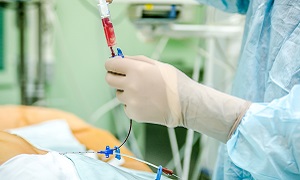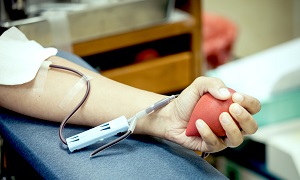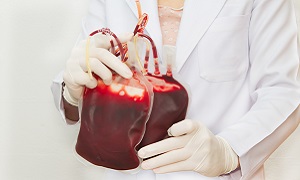Best Allogeneic BMT Doctors in India
Best Allogeneic BMT Hospitals in India
- City: Mumbai, India
Hospital Highlights:
- Fortis Hiranandani hospital was established in 2007.
- The hospital is an advanced tertiary care, multi-specialty hospital equipped with 149 beds.
- The hospital is equipped with a super ICU to provide emergency medical care to critically ill patients.
- The hospital is NABH accredited.
- The critical care facility in the hospital is augmented with the state-of-the-art facilities that facilitate speedier diagnosis and efficient monitoring.
- The hospital provides specialty medical services in cardiology, orthopedic science, pediatric science, neurology, diabetic care, urology, nephrology, ENT, obstetrics, gynecology, cosmetic surgery, bariatric surgery, neuro and spine care.
- City: Gurugram, India
Hospital Highlights:
- W Pratiksha Hospital, Gurugram, is one of the best hospitals in the NCR region. It is also a top hospital in India for IVF. Since its inception, the hospital has performed over 5500 successful IVFs. The hospital also specializes in gynecology.
- With over 20 years of experience in providing quality healthcare, the hospital is known as one of the most trusted and valued health providers in India.
- Equipped with world-class medical facilities and advanced technology, the hospital’s doctors and clinicians also have a track record of delivering excellent results. The hospital is also known for focusing on preventive well-being as much as on curative treatment.
- The hospital has earned the trust of its patients, by providing the best available treatments at affordable costs.
- City: Gurugram, India
Hospital Highlights:
- Paras hospital was established in 2006 and is the 250 bedded flagship hospital of Paras Healthcare.
- The is supported by a team of doctors of international and national repute.
- The hospital is NABH accredited and also the first hospital in the region to have a NABL accredited laboratory.
- The hospital provides specialty medical services in around 55 departments including Neurosciences, Joint Replacement, Mother & Child Care, Minimal Invasive Surgery, Gynecology and Obstetrics, Ophthalmology, Dermatology, Endocrinology, Rheumatology, Cosmetic and Plastic surgery.
- The hospital is equipped with state-of-the-art technologies.
- City: Kolkata, India
Hospital Highlights:
- Fortis Hospital, Anandapur, Kolkata is a world-class super-speciality equipped with the latest technologies in the medical world.
- The hospital is NABH accredited.
- This state-of-the-art facility specializes in cardiology and cardiac surgery, urology, nephrology, neurosciences, orthopaedics, digestive care, emergency care and critical care.
- The hospital, governed by integrated Building Management System (IBMS), has a pneumatic chute system, for quick vertical and horizontal transportation between floors, facilitating speedy transfer of patient specimens, documents, reports, and medicines to the concerned departments.
- The hospital also has a nephrology department with over 28 advanced dialysis units.
- City: Mumbai, India
Hospital Highlights:
- SL Raheja hospital is a 140-bed multi-specialty tertiary care hospital that is being managed by Fortis Healthcare Ltd.
- The hospital is a benchmark in healthcare and medical facilities in the neighborhood of Mahim & the western suburbs.
- L.Raheja Hospital, Mahim has one of the most effective ICU and Casualty care services.
- The hospital provides specialty medical services in Cardiology, Oncology, Neurology, Orthopedics, Mother & Child Care, and in Diabetes.
- City: Mumbai, India
Hospital Highlights:
- Wockhardt Hospitals were established in the year 1973, originally called First Hospitals and Heart Institute.
- Wockhardt Hospitals are super specialty health care networks in India, nurtured by Wockhardt Ltd, India’s 5th largest Pharmaceutical and Healthcare company.
- Wockhardt Hospitals is associated with Partners Harvard Medical International, an international arm of Harvard Medical School, USA.
- Wockhardt Heart Hospital performed India’s first endoscopic heart surgery.
- The hospital has a state-of-the-art infrastructure equipped with the latest technologies and modern equipment.
- It has special Centers of Excellence dedicated to the major specialties to provide hassle-free and high-quality clinical care.
- City: Gurugram, India
Hospital Highlights:
- The CK Birla Hospital in Gurugram is a NABH-accredited multi-specialty hospital.
- The hospital strives to increase the quality of healthcare by focusing on UK NHS nurse and midwife training requirements. Policies and practices derived from the National Institute for Health and Treatment Excellence (NICE) recommendations in the United Kingdom ensuring that a strong focus on safety, high-quality clinical care, and sanitation is maintained.
- The hospital’s cutting-edge technology and facilities allow for real-time communication and seamless collaboration among caregivers, ensuring accuracy and the best possible results. Those with foreign experience and accreditations make up part of the hospital’s team of clinicians.
- City: Ahmedabad
Hospital Highlights:
- As a member of the Apollo Hospitals Group, Apollo Hospitals International Limited, Ahmedabad is one of the most popular and sought-after medical facilities in Gujarat.
- Through its 6 Centres of Excellence and various affiliated branches, which cover all specialties and subspecialties, the hospital provides the most advanced clinical services.
- Since its inception in 2003, the hospital has been providing each patient with the most up-to-date medical equipment and state-of-the-art technology.
- With more than 150 successful organ transplants, including liver and renal transplants, the facility has been able to build a strong and extensive organ transplant program.
- In addition to performing 600 surgeries and caring for over 1800 patients on an IP basis, the hospital sees more than 18,000 patients on average in the outpatient department.
- With one of the biggest cardiology teams in the area, the hospital provides state-of-the-art regional care treatment in Cardiac Sciences.
- Additionally, the hospital offers a broad range of Neuro Interventional techniques to help stroke patients recover more quickly.
- City: Noida, India
Hospital Highlights:
- Jaypee Hospital is the flagship hospital of the Jaypee Group.
- This hospital has commissioned 525 beds in the first phase and has been planned and designed as a 1200 bedded multi-specialty facility.
- It holds the accreditation of the NABH and NABL.
- The hospital has state-of-the-art infrastructure equipped with the latest technologies and modern equipment like 64 Slice PET CT, Dual Head 6 Slice SPECT CT, Gamma Camera, and Da Vinci Robotic Surgery for comprehensive robotic surgical solutions.
- It has special Centers dedicated to the major specialties to provide hassle-free and high-quality clinical care.
- City: Mumbai, India
Hospital Highlights:
- Reliance Hospital is one of the best super-specialty care hospitals in Navi Mumbai.
- The main purpose of this hospital is to become a trustworthy place for the best health and hope for society. The hospital is well connected to the suburbs of Mumbai and Navi Mumbai.
- The hospital has various specialty departments, viz., Accident & Emergency, Anesthesiology, Dental Services, Dermatology, Diabetology, Dietetics Nutrition, Endocrinology, ENT, Gastroenterology, General Surgery, Gynaecology And Obstetrics, Hepato Pancreato Biliary Surgery, Infectious Disease, Internal Medicine, Interventional Radiology, Laboratory Medicine, Minimal Access Laparoscopic Surgery, Nephrology, Neurosciences, Opthalmology, Orthopaedics, Paediatrics, Pain Management Palliative Care, Physical Medicine Rehabilitation, Plastic And Reconstructive Surgery, Psychiatry, Pulmonary Medicine, Radiology, Rheumatology, Transplant, Urology Andrology, Vascular Surgery
What is Allogeneic Bone Marrow Transplant?
An Allogeneic Bone Marrow Transplant (or Stem Cell Transplant) is a type of Bone Marrow Transplant where you receive healthy bone marrow from a matching donor to replace your diseased or damaged bone marrow.
When is Allogeneic BMT recommended?
Allogenic Bone Marrow Transplant is generally recommended for patients who are undergoing treatment for multiple or serious cancer or non-cancerous conditions. The doctors based on your clinical examinations will help you determine whether the allogenic transplant procedure is a perfect fit for your condition or not. Nevertheless, here is a list of the possible diseases that might need allogenic bone marrow transplant to cure:
- Chronic or acute leukemia
- Aplastic anemia
- Hodgkin’s/ Non-Hodgkin’s lymphoma
- Neuroblastoma
- Plasma cell disorders
- Multiple Myeloma
- POEMS Syndrome
- Myelodysplastic syndrome
- Immune deficiency
- Inborn metabolism disorder
Common diagnostic tests for Allogenic Bone Marrow Transplant
Some common diagnostic tests recommended to determine the need or course of your allogenic bone marrow transplant are- blood tests, X-Ray, bone marrow biopsy, pulmonary lung tests, PET scan and most importantly, Tissue Typing.
Donor matching
Unlike autologous transplant, the success of an allogenic bone marrow transplant heavily depends on how successful the donor match is. Often, the donor is someone related to you such as sibling, parents or any close relative. However, in some cases, donor registries are used to find the closest match. This brings us to Tissue Typing, a clinical test opted by both the donor and the patient in which proteins called HLA or Human Leukocyte Antigens found in tissues and white blood cells are extracted and tested to determine if the donor’s HLA and the recipient’s HLA matches or not.
The process includes extracting blood from both the donor and the patient and then tissue typing the blood samples to find the right match
The usual donor types include:
- HLA matched relative
- HLA mismatched relative
- HLA matched non-relative (donor unrelated)
- Unrelated umbilical cord match
Stem Cell Extraction:
Once the doctors are able to determine the perfect donor match for you, the stem cell extraction process is started to filter out the healthy stem cells from the donor’s blood. There are primarily two methods used by doctors to extract the stem cells from the donor’ body. The hematology team will decide the best method applicable for you.
The PBSC Donation
In this method, the donor will be injected with Filgrastim, a medication that boosts the stem cell count in the donor’s bloodstream. Based on favorable conditions, the stem cell extraction process starts after a few days where thin tubes inserted into the donor’s arms is connected to a machine. Blood extracted from the body passes through the machine that filters out the stem cells as the rest of the blood is returned back through the other arm. The stem cells are then frozen for the transplant day. The donor will be awake throughout the procedure.
The Bone Marrow Donation
Allogenic Bone Marrow Transplant preparation
The preparation method consists of a procedure called the Conditioning or a preparative regimen where the patient has to undergo chemo or radiation therapy to destroy the damaged or infected stem cells that are crowding inside. The process usually takes place a few days before the actual transplantation process and might come with a few common symptoms. The procedure based on the patient’s condition may have to repeated more than once or twice to ensure all the diseased stem cells are completely cleared out of the system before the actual transplantation process starts.
This procedure is also important to suppress the patient’s immune system to avoid it from reacting to the new stem cells that’ll be introduced during the transplant process. The conditioning reduces the risks of a transplant failure due to the body’s proactive immune system.
The Procedure- Day Zero!

On the day of the transplant procedure, also known as Day Zero, the patient undergoes the transfusion through a thin tube called the Central Line injected into the chest area of the patient. The stem cells introduced will make it to the bone marrow and fill up the gap left by the diseases stem cells and over 10 to 28 days the effects of the new stem cells will start showing as they start to repopulate the area
What to expect after Allogenic Transplant?
The stem cells refrigerated after the conditioning process is often coated with a preservative which may or may not cause certain symptoms post the transplant procedure. These symptoms can be in the form of-
- Chest pain
- Fever
- Chills
- Nausea and Vomiting
- Headache
- Diarrhea
- Shortness of breath
- Fatigue
- Bleeding disorders
- Mouth ulcers
Possible complications
Due to the reduced immune system, patients may experience low blood count which in turn makes them vulnerable to certain infections. Patient’s may have to undergo blood transfusions if their haemoglobin level falls or antibiotics and medicines to flush out the preservatives from the system and to protect the body from being exposed to infections.
Another possible complication can be the GVHD or the graft-versus-host disease where the immune system of the patient recognizes the newly introduced donor cells as foreign and harmful and might attack it. The intensity of this complication varies from patient to patient and medical drugs and constant monitoring are prescribed to tackle this situation
Recovery & care after Allogenic Bone Marrow Transplant
You’ll be asked to stay back in the hospital for a few days to monitor your recovery during which the medical team will help you out with the required medicine doses and diet chart. However, once you are released, the care and recovery are completely dependant on the patient. Please keep these pointers in mind:
Maintain a strict diet. Ask your doctor or medical team for a dietary chart and abide by it strictly to improve your recovery rate.
- Ask your doctor about vaccinations necessary to help you improve your immune system.
- Always take your medicine doses on time and don’t make any changes in your everyday medical routine unless advised otherwise by the doctor.
- Avoid weight gain at all cost.
- Avoid strenuous physical activities but make sure you exercise to keep yourself from unwanted weight gain.
FAQs
What is the usual hospital stay for an allogenic transplant?
Hospital stays depend on the patient’s recovery rate. However, a minimum 2-4 week is given to monitor the condition and patients might be asked to stay back or visit for routine follow-ups to consistently monitor their recovery.
What is the success rate for allogenic transplant?
Usually, allogenic transplant success rates heavily depend on how close a match the donor is. With the right donor, the success rates can be as high as 60-80%
What are the chances of my family members being my donors?
Almost 7 out of 10 cases noted that family members weren’t a close match. The match works only 1 out of 4 times for brothers or sisters. This is why the bone marrow registry is also consulted and 1 out of 430 matches are selected to be the perfect match
Will donating bone marrow affect me in any way?
Usually, only 4-6% of the donor’s bone marrow is extracted and the bone marrow regenerates itself within 4-6 weeks. Donating bone marrow will not affect donors permanently.
Are there any symptoms or risks to donating bone marrow?
Risks are rare and affect only 1% of bone marrow donors seriously. However, donors may feel certain side effects in terms of headache, muscle pain, nausea, or common flu symptoms. However, if any symptoms persist for more than a week, contact the medical team immediately.
What happens if my transplant fails?
Even though it’s rare, a failed transplant is possible. However, in that case, doctors usually recommend a second transplant.
What happens if my cancer comes back?
The sole purpose of the medical procedure is to kill or prolong the diseased cells affecting you. Even though the success rate is high, some patients have experienced a relapse. However, this is rare and in such cases a second transplant is advised by the doctors.













